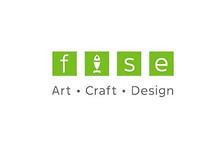
EASEWE: Entrepreneurial educAtion for Self-Employment of immigrant WomEn
The COVID-19 pandemic has had serious socio-economic consequences, particularly affecting groups and sectors that are inherently more fragile.
Impact on the Cultural and Creative Sectors
The economic crisis and social distancing measures have hit the cultural and creative sectors especially hard. These sectors consist largely of micro-enterprises, non-profit organisations, and professionals who are particularly vulnerable to the crisis's effects.
A recent study by the International Labour Organization (ILO) classified professionals in "arts, entertainment, and recreation, and other services" as being at medium/high risk. These professionals often face unstable employment relationships, with a high prevalence of self-employment, discontinuous and short-term contracts, as well as undeclared employment.
The "Shecession"
The term "shecession" (she-recession) highlights the severe impact of the crisis on women, exacerbating existing structural inequalities. The "Europe 2020" plan had already emphasised the importance of increasing women's employment to promote inclusive economic growth.
However, women are among the most affected by the economic crisis. The UN report, "The Impact of COVID-19 on Women," notes that the pandemic has deepened gender inequalities, with women more likely to be employed in the hardest-hit sectors and taking on increased unpaid care responsibilities.
Challenges for Immigrant Women
The situation is even more challenging for immigrant women, for whom accessing the job market is a crucial first step towards integration. According to Eurostat, immigrant women face double discrimination in the workplace and have fewer opportunities to find employment ("Eurostat, Migrant integration statistics – labour market indicators"). Additionally, family obligations often prevent them from participating in adult training courses, requalification measures, and other integration programs. These barriers make it even more difficult for immigrant women to achieve economic stability and integrate into society.
Supporting Women’s Entrepreneurship
To address these issues, it is essential to support autonomous work for women, which can encourage entrepreneurship and provide them with the necessary training and opportunities to thrive in the job market. EASEWE provides resources and support for women to start and grow their businesses can help mitigate the impacts of the crisis and promote a more inclusive economic recovery. Such programs, aimed at enhancing women's entrepreneurial skills and access to financial resources, are crucial steps towards achieving this goal.
Learning objectives:
The learning objectives of this project were:
-
to support the work of Adult Educators by developing a process of entrepreneurship education in the cultural and creative field.
-
to support the discovery of self-entrepreneurship by immigrant low-skilled women and to improve their entrepreneurial spirit.
-
to support the access of immigrant low-skilled women to entrepreneurial and technological trainings, with a specific focus on economics and on developing cross-sectoral skills.
-
to share and spread information and good practices in the entrepreneurial education field and the field of immigrant women entrepreneurship in order to support public and private efforts and the innovation of the cultural and creative field in a post-pandemic era.
Target audience:
-
Immigrant women
Partners:






